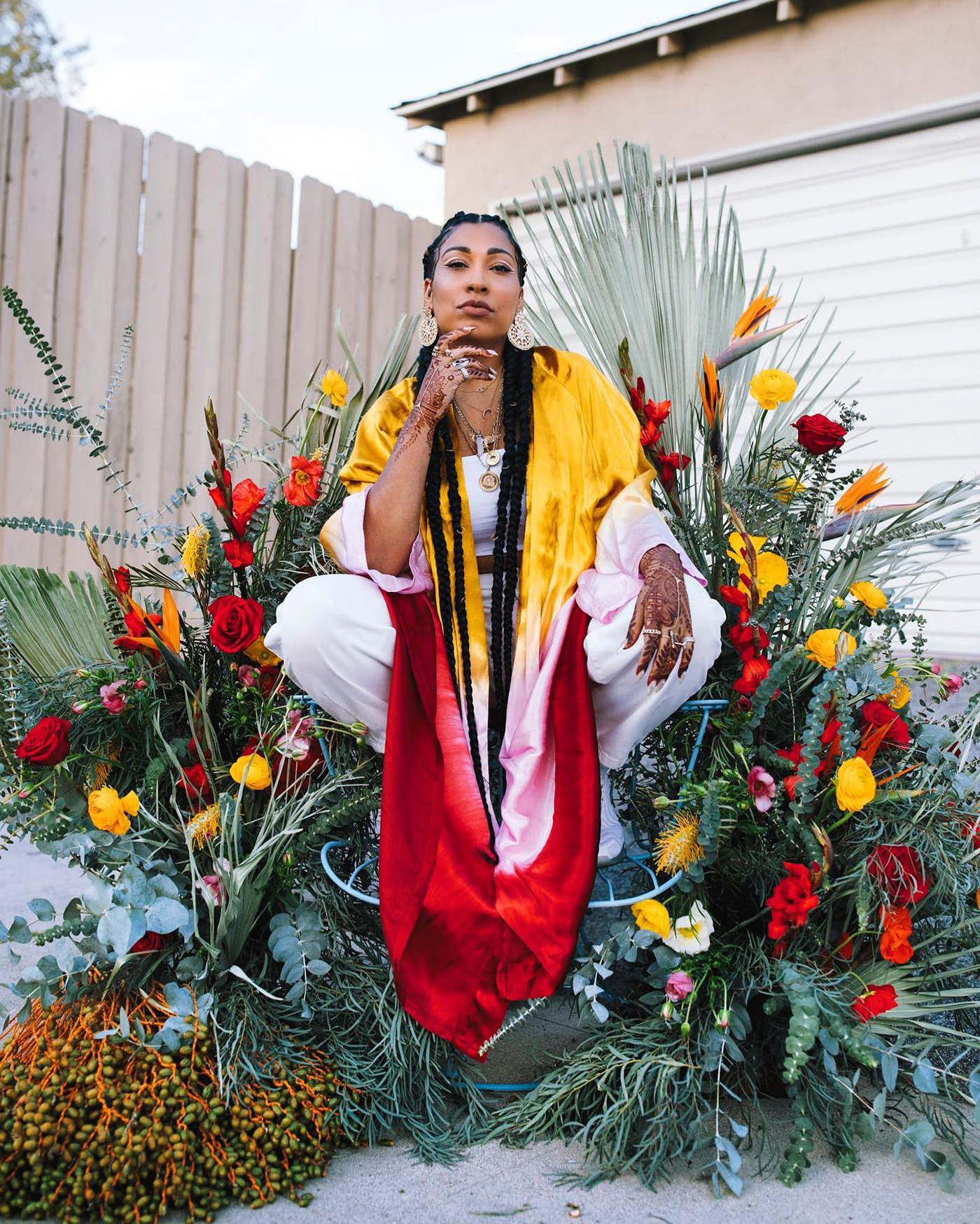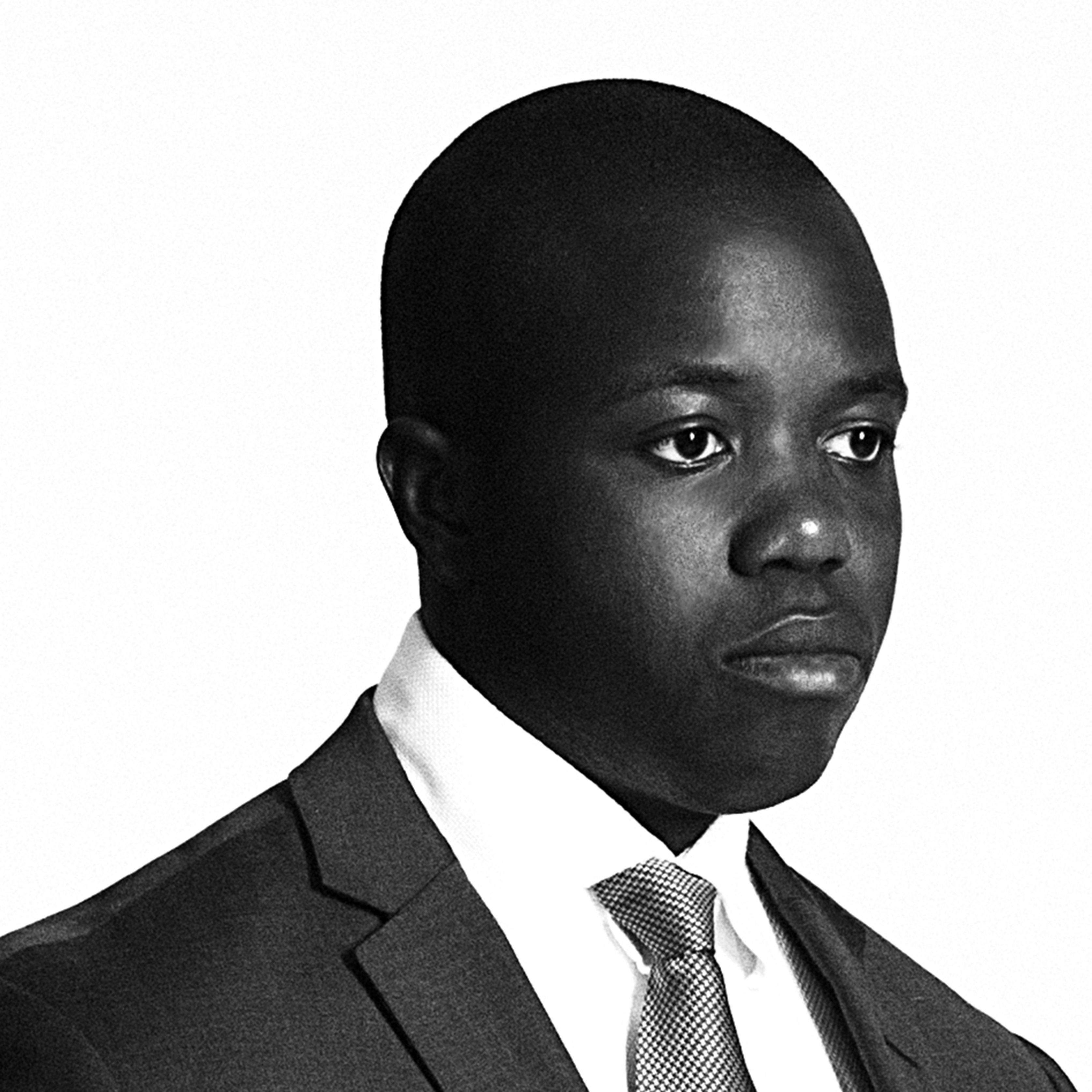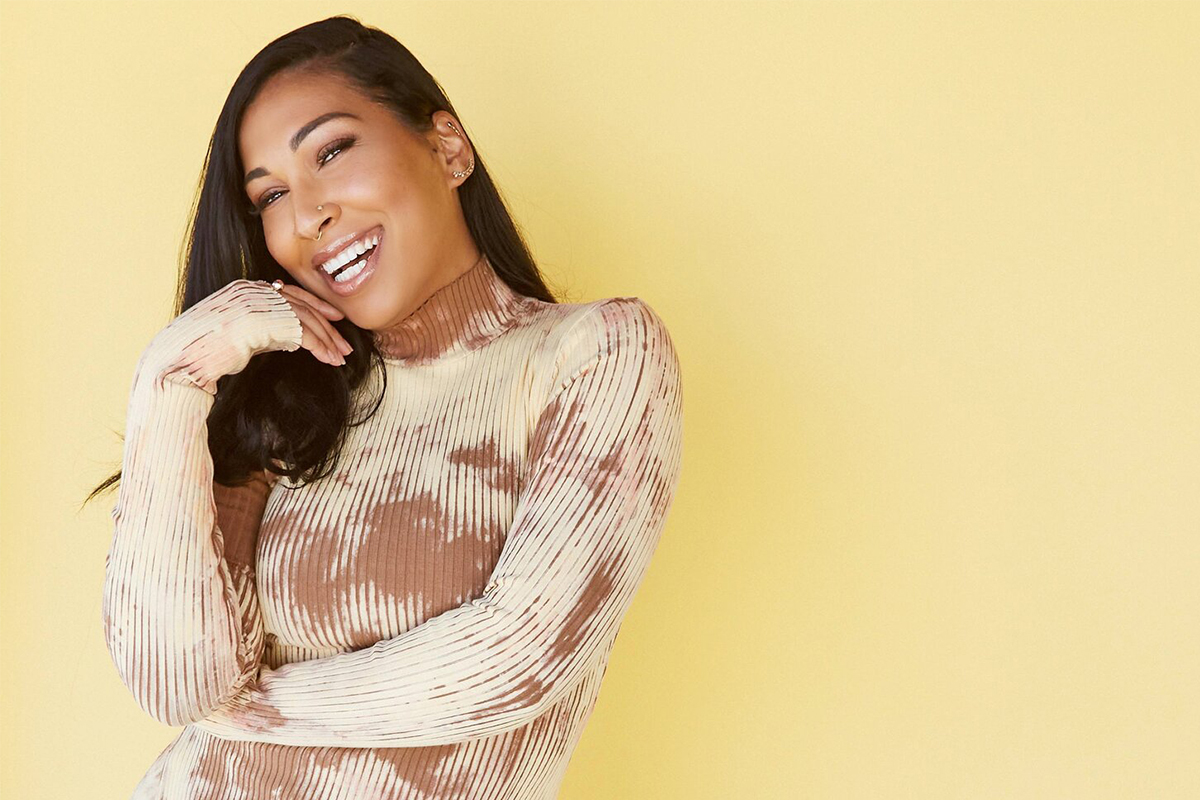This interview has been lightly edited for clarity. Two of the photos featured herein are by Ajani Charles, whereas the rest are by Johanna Brinckman and Lara Kaur, courtesy of Melanie Fiona.
Ajani Charles: Let’s get into it.
A lot of what you’ve written through your newsletter resonates with my story, which I can touch on as we go.
Through your newsletter, you mentioned that before this year, you were held back by fears of being compared to other artists and fears of being judged by people, both within and outside of the music industry, the arts, and entertainment.
So, how did you transcend the fear of being compared or judged? And how does technology like social media and the music industry fuel those fears?
Melanie Fiona: Well, I think the main fear that I had, aside from being compared to other people, was being compared to a previous version of myself.
And the idea and the pressure of what that came with.
I guess an expectation based on what I had accomplished or what I had done in my life, compared to the success and the progression and the journeys of other people.
And you know the music industry and entertainment industry, in general, is a competitive industry. It’s very competitive, and things are weighed against what one person is doing and what’s working for one person versus what’s not a lot of the time.
As I started to recognize how that fear was paralyzing me, it was almost like having an out of body experience, so it’s like seeing myself be fearful of judgment and criticism and failure, and then knowing that this thing had a stronghold on me, but then also surrendering to the idea that this is a part of the journey.
This is the part of the process, you’re going to have to break yourself down, you’re going to have to force yourself to get a little bit more vulnerable, and then you’re going to have to rebuild yourself back up.
And so, I was watching it happen as I was experiencing certain professional obstacles.
And then I had to really recognize that it was a part of the process.
It’s almost like you have to lose to win again, that feeling, and you have to be okay with it.
And gaining that mentality and that peace came with a lot of self work and a lot of wellness work.
Social media, the instant access and gratification you get from things going viral and seeing what other people are doing and being consumed at all times, by comparison, you really have to do a lot of work to be able to shut that noise off and not allow all that comparison to steal your joy.
And so, that’s the work that I had to do within myself. I had to take away the expectations of what I was allowing others’ expectations or even expectations I had of myself to be this version of me.
I gave myself the permission to evolve into all that I am, all that I am as a being, all that I am as a creative, and remove the judgment.
As long as I’m creating and growing with intention, I can experience my day-to-day happiness and wellness, and well-being.
And so, that was a very freeing thing, but it came at the expense of therapy, lots of wellness practices, and dark night of the soul, and losing and ending significant and codependent relationships that I had.
And really getting back to self, it was a whole journey in itself and I’m still on it.
And now, as you said, there’s so much going on through the internet, and if you feel like you have to burn yourself out to compete with everyone else, then you’re not prioritizing your wellness. So I realized that my direction is more important than my speed, and I just needed to work at my own pace with what works for me and not the demands of other people.
Ajani Charles: I resonated with all of that. We could end this interview right now; there’s so much in what you just shared.
In high school, as kids, we would compare ourselves to our peers.
And at the time, my high school had the largest population of high school students in Canada, which was overwhelming.
But now, if you’re a musician, you can compare yourself to musicians in China, in Beirut, in Europe, and it’s endless.
And many musicians, especially musicians that have experienced a lot of commercial success, some never get to the point that you’ve gotten to.
And so they can’t enjoy their commercial success, because they allow comparison to consume them.
I think it’s terrible.
Melanie Fiona: It’s crazy.
And you know what I love is the other side of what streaming and the internet have done for artists.
The person who was struggling or that you had a strong desire to hear their music or see their art on a commercial scale, they can do that now.
So, what I love about the internet now, is that you can find the niche audience that you can service, and they can reciprocate their love and support in return, and it does not have to be what it once was.
We hear about the YouTube stars or the bedroom singers or the SoundCloud artists or whatever; these are viable careers at this point.
So, what I love about the internet now for artists is that you can find your audience, you can find your people.
It’s not quite like finding a needle in a haystack anymore; even though it is, it is quite a haystack of artists, but your people will find you.
Your true supporters and the people who resonate with whatever you’re creating can find you if you use the internet to your advantage.
And so, that’s a beautiful thing that I’m looking forward to at this stage of my life because I can say that I’ve experienced both.
I’ve experienced great commercial, late night talk show, MTV, VH1, Much Music success. I’ve experienced that.
But then, by choice, now I can also experience a much more boutique, direct to consumer business.
Now that I have a fan base built, I can continue to grow with them personally, which brings me back to the newsletter.
That is much more fulfilling to my wellbeing than the demands of being pulled on a commercial scale [in the music industry], to be honest.
Ajani Charles: That’s amazing.
I think, depending on your psychology and the level of consciousness that you’re operating from, you can either adaptively use the internet, which is how you’ve been using it recently, by connecting with your amazing and loyal fan base, or you can use it to harm yourself by comparing yourself to others, by consuming content that may not be in your best interests, etc.
Coincidentally, my therapist has helped me so much. I think I have one of the best therapists, and he’s a huge fan of your music.
He’s a big fan, and when I mentioned that I would be interviewing you, he wondered what happened to you, musically.
This was maybe a few weeks ago he was asking me. Then I got an email from you through your newsletter where you explain what happened to your voice, that various doctors were not able to figure out what was going on with you. You realized that you were carrying a lot of trauma from your past and that it had manifested in your voice, which is part of your livelihood.
Through the newsletter, you also said that you experienced a mental breakdown and the pain of some unhealthy professional relationships. You were in a lot of pain from people-pleasing.
So, can you give me a brief recap of how all of that came to fruition and how you came out on the other end?
Melanie Fiona: The first thing that happened, was back in 2012; I had just released my sophomore project.
It was a very confusing time because I am at the height of my career. I’m releasing my sophomore album; I’m off a Juno win; I’m off my Grammy wins; I’m personally going through the worst breakup of my entire life and a lot of personal change and transition.
And as I’m on promotion for this second album that’s doing so well. My throat is starting to give me problems.
As you said, my throat was under investigation; I was going to different doctors, nobody could diagnose it as a physical condition.
And it was one doctor that sent me for energy healing.
And he said, “I believe that what’s happening to you and your throat and your voice is on an energetic-spiritual level, that “you are holding tension and trauma and pain in your voice, and we need to get to the bottom of that.”
And at this point, I had essentially hit rock bottom because I couldn’t sing the way I was used to singing, and I didn’t know what it meant for my livelihood, for my life.
I didn’t know if this thing was temporary, if it was going to last, if there was any remedy,
No doctor could tell me any definitive answer. So, I agreed. I said, “Okay, I’ll go for Eastern medicine, let’s go.”
He said “I’m going to send you for acupuncture and I’m going to send you for Reiki.”
And I had been familiar with Reiki before. On one occasion.
But, this was a significant awakening to my lifestyle, to my spiritual journey, to literally everything that went on to save my life and prepare me for every challenge ahead.
So, I ended up going for three sessions of acupuncture, three sessions of Reiki, where I had physical responses, and there’s no way for me to describe it other than I went in being skeptical, but open to seeing what was there, even though I had some skepticism.
I was willing to show up. And the response that my body had, that my voice had was instant.
It was an instant relief of tension, and I could feel this negativity leaving my body.
And you know this negativity I had was the result of personal heartbreak, lots of transition in my professional career, stress demands, people-pleasing, all the things that go into being a person and an artist in the public eye without having the tools to be prepared for that level of rigorous demand.
And so, I ended up going three sessions each, and then toured for six weeks after with Mary J. Blige and D’Angelo and did not have another problem with my voice ever again.
And there’s no other way for me to explain it, other than I needed spiritual and soul healing, and I needed to get my mental and well-being, and state of mind and life together.
And that was the start of it. And then after that, I transitioned into leaving my major label recording; after all that success, I left my label, and I decided to embark upon being an independent artist, and that came with its own challenges, and a lot of people ask what happened.
Unfortunately, I created an album that was never released.
I had to work through some professional, legal challenges and obstacles to get myself emancipated from that situation, basically, and it took some time.
And in that time, I also had a baby and my life had changed on a greater personal level as well.
But, I know for a fact that all of that had to happen.
It all had to happen for me to be this version of myself to find my greatest level of strength, for me to prioritize myself on a greater level than I ever had before. As an artist, as a woman, as a mother,
To recognize everything that I had gone through and all the practices that I had developed to maintain my wellness throughout were all going to be a part of my toolbox to help me through life.
And so I cling to that, and I cherish and value it so much, so I never looked back on anything difficult or challenging for me and say, “oh, I wish that didn’t happen.”
At the moment, you wish it wasn’t happening. But, I’ve learned that it’s all with purpose, and I find myself so much more proud of who I am now, post the height of my success as a musician, being able to have a sound body and mind, post all of it.
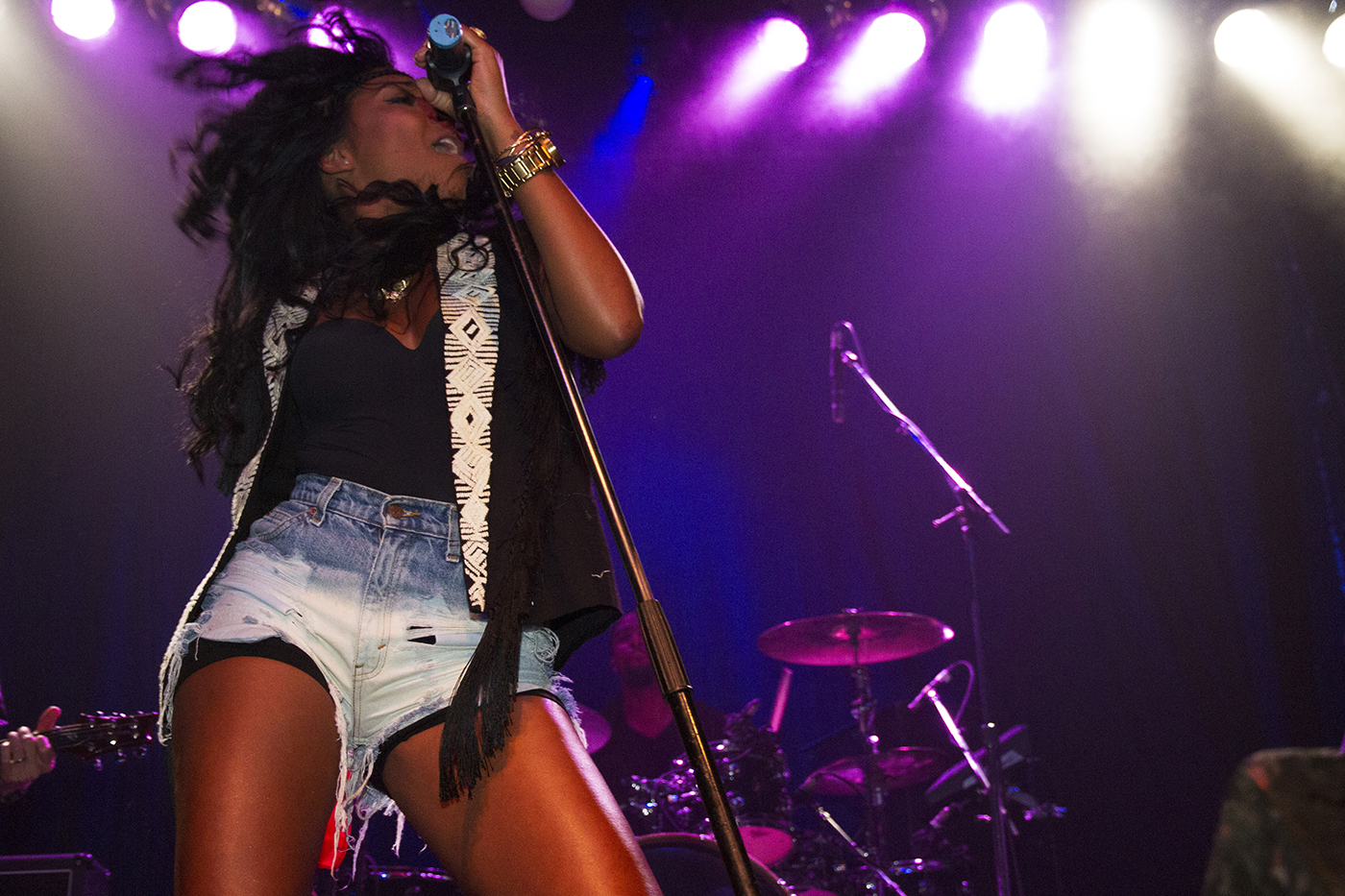
Ajani Charles: That’s an amazing story.
I’m so glad that your voice was healed.
I think that Western medicine is amazing, but it doesn’t have all the answers. So, it’s great that you met with a doctor that had the intuition and the wisdom to direct you on the path that eventually healed you.
And your story resonates with me so much because I had my own existential crisis in 2014, where I was basically at a crossroads.
I had to decide, am I going to find ways to heal myself and understand the sources of my suffering, or will I continue down the same path of pain, destruction, frustration, and self-condemnation?
And thankfully, thanks to fate or a higher power or what have you, I chose to heal myself.
And it is a very painful process, asking yourself tough questions, looking at yourself in the mirror metaphorically, and doing that work, but I wouldn’t have it any other way.
My life is so much better now, so much more fulfilling now than it was five years ago, seven years ago, ten years ago.
Melanie Fiona: Accountability is a beautiful thing.
And we’re so afraid to have it sometimes.
As you said, it’s a metaphor; we look at it, look in the mirror and say, “oh, like I got to own up to that, and I have to face these things.”
Still, accountability can be such a beautiful thing when you lean into it because you cannot change what you don’t acknowledge.
If you’re prepared to commit to healing, you have to be willing to see yourself for everything that contributes to the overall, encompassing picture of yourself.
And it’s not always pretty. And it sometimes comes with some pain, and some tough decisions needing to be made and breaking up hard cycles and generational traumas
It’s hard, but it’s a beautiful thing when you say, “I chose to heal” because some people don’t even have the awareness to know that that’s a choice.
Ajani Charles: Yeah.
It’s a choice.
And for me, it involves a lifelong commitment.
The introspective work that I engage in, the healing work that I engage in are lifelong pursuits because I don’t want to go back to before when I had my blinders on, and I was cut off from myself. That didn’t work.
I’m committed to this work for the rest of my life.
So, what has the pandemic been like for you? And what is it like being a mother, under these conditions?
Melanie Fiona: For me, I feel like the pandemic was the extra pause I probably wouldn’t have taken for myself, even though I know and honor the importance of pause.
And I think it did that on a collective level, when the world had to take a pause, I think we all had.
It definitely ignited something within me that I probably wasn’t fully aware of.
I was focusing so much on figuring out how I was going to progress in my music career. In the aftermath of moving on with my professional music career, here is a great pause that doesn’t allow me to continue my music career.
No live shows, no touring, no in-person interactions or appearances, which is my livelihood as far as the majority of what my career has been.
And so, it activated and ignited this wellness side of me, to share, to give what it is that I could offer.
And the thing that I love about performing and the thing I love the most about singing is that I get to connect with people, bringing a sense of healing.
When I sing my songs and when I’m out with people and I can see them, they release, and they cry, or they throw their hands in the air, they say, “yes, this is my song, you’re singing about my life or whatever it is I feel what you’re saying, I feel what you’re singing.”
I felt I took the opportunity during the pandemic to give people that word, and through sharing my wellness practices and sharing how I’ve come to this place of my life where I feel like I have a little bit of a vat of wisdom that I feel can be applied to people in straightforward human to human ways.
And I think that sometimes the idea of wellness and spirituality can seem very overwhelming.
And so it activated this part of me to make it digestible for people, to show people how they can exercise, and prioritize that within their days, and that’s kind of what grew my social media following to the most that it has been without music, which is really interesting.
And it taps in more to the purpose of what I truly believe I have to offer, which is healing, and I’ve always felt that way since a young child.
And now that I have a little one in the house, every day, you know his world stopped and paused, he was starting school, and then that shut down and forced me to have to adjust with him and do homeschooling take on another role.
On top of being an artist, wife, mother, now I had to become a teacher, I had to become a caregiver full time, there was all of that, and so, it really forced me to have to also maintain practices of wellness, not just to give my son, but also for myself, because now more of me is being demanded of on a full-time basis, 24 seven.
But it’s been beautiful.
I feel so blessed to say that we’ve been blessed through this in good health.
And growth as a family.
I think it gave us a re-examination of what is important, both my husband and I work in music and entertainment.
And so, again, a very reactive, very respond on-demand industry. In contrast, when everything slowed down, we got a chance to really look back and say, “how do we want our lives to look moving forward, what do we want this to look like for ourselves, and how do we want that to affect our kid?”
And so I think it just made the impossible possible.
The fact that the world could shut down overnight, gave me this inspiration that anything is literally possible.
So if the world could shut down overnight, then why can’t you birth all the new ideas and all the things that you want to do in this life because nothing is really as we thought it was, so make it what you want it to be the best way that you can.
And so that’s what fueled me to spread my wingspan a little wider and start to share a little bit more of my personal life and personal practices, and talk my son through this very tough time because trying to explain to a four-year-old at the time, “you can’t see your friends and we can’t go see our grandparents.” It was very hard.
But, I’m so fortunate that my son is very emotionally sound and intelligent, and he understands to the best level of his capacity what is being asked of us right now.
And the beautiful thing is that he really just loves being with us.
So, it’s been like a dream come true to have us home as often as we’ve been throughout the year.
But to be honest as a parent, I’m quite concerned about what happens now that the world is starting to open up.
How do we all adjust, how do we all respond, how do these children get back, without their parents that they’ve had, every single day, which would have never been that way before, for 365 plus days.
How do they now acclimate back into the world as little people? And the beautiful thing is that kids are super resilient, but I even think just for us as adults, we really need to be super-mindful right now about how we step back into this new world.
I mean, I went from touring and doing big rooms, small rooms, at the drop of a dime, not even thinking twice, and now the thought of being in a room with many people gives me such pause, such anxiety.
Do I have to do that? How can we do this?
And it’s odd because I love performing, and it’s my favourite part of what I do.
I watched the MSG game the other day with the Knicks, and there were 15,000 people in an arena, and I was like, “Oh, wow.”
And so I think that moving forward, we’re just going to be very mindful of where we put our bodies and our energy and what we expose ourselves to.
Ajani Charles: Yeah, there’s a lot to unpack there, and I wasn’t expecting what you mentioned about your anxieties about performing, but it makes sense.
We’ve been so far removed from these environments, but I am afraid that many of the things that weren’t working for our society two years ago, a year and a half ago, that they’ll come back.
Like the rat race will manifest in a similar fashion to what it was before.
I think there’s a lot of things about how we used to live that should stay in the past.
Melanie Fiona: Definitely, definitely. Suppose I was working a traditional corporate job where I was demanded to be somewhere, nine to five, and I had a family with demands and needs at home. The amount of stress that puts on a family dynamic and your happiness daily, being so reactive and on-demand, I feel as now, an employee might be able to tell their boss “for the wellbeing of myself and my family, I’d like to suggest that I work from home twice a week, and come into the office three days a week.”
That demand, having to pull yourself and exhaust yourself with commuting and travel, away from your family and these things, as you said, the rat race and some other things need to stay in 2019.
I don’t think that they serve the well being of people overall moving forward.
And so I think that now we’ve seen that it’s possible for people to produce and be productive from home.
I would like to believe that there will be a lot more grace and understanding from the demands of business and industry to accept people’s boundaries so that people can say, “this is what I’m comfortable doing” and working at it as long as it doesn’t affect your performance and how you show up, I don’t see why it needs to go back to the way that it was.
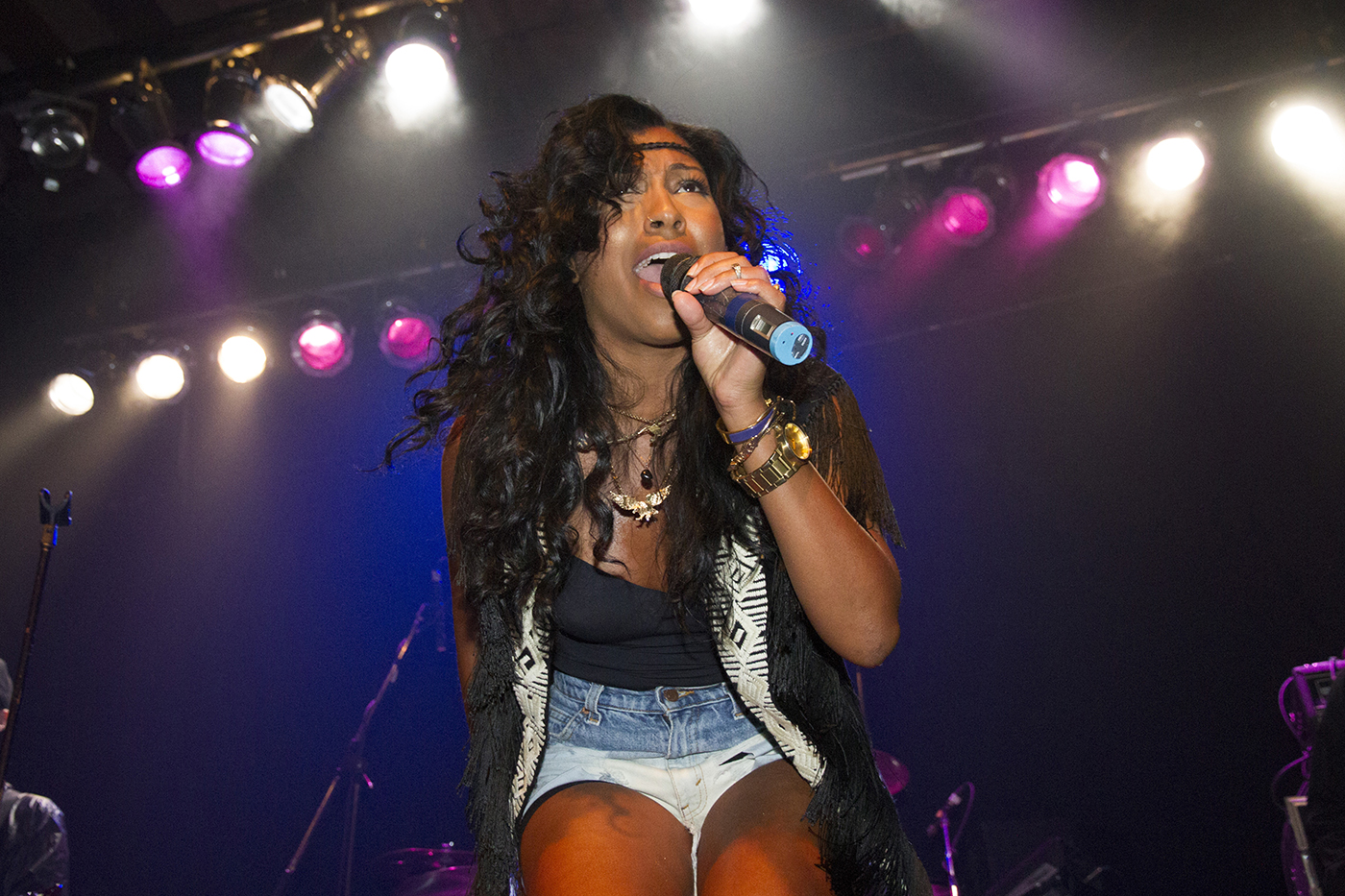
Ajani Charles: Right.
One of my coping mechanisms that I’ve been working hard with a lot of help to break is workaholism. Staying “busy.”
So, many people around the world have the same addiction, and they have it in a way that’s unprocessed to them, so they don’t even realize they’re doing it.
And it’s so bad in some places. For example, in Japan, they have a term called karoshi, which means working yourself to death because so many people in Japan die from workaholism.
And I do hope that most human beings that are stuck in that pattern are given exposure to the tools and the assertiveness to set those boundaries that you were talking about, to tell your boss, “no, I can’t, I can’t work this weekend, or it’s best if I work from home a couple of days a week.”
I think that will be an ideal place for us to be in.
In terms of what you mentioned about the new offerings that you have and how you’ve added value to people’s lives with new mediums, new channels, I hope that a lot of people in your audience are creatives because I think creatives are particularly vulnerable to different mental illnesses and different forms of neuroses.
In my workshops on mental health, I’ve mentioned that you can reach the pinnacle of what people would perceive as success, like Prince, like Harvey Weinstein, like Kurt Cobain, like Michael Jackson, Like R. Kelly. If your mind isn’t right, you can lose it all in minutes or hours or a few days if you don’t have support. If you’re not doing any spiritual work.
So, is there a correlation between mental illness and creativity, or is it possible to be a successful creative depending on your definition of success while also being psychologically grounded spiritually grounded?
Melanie Fiona: That’s a very, very loaded question, because they always say to be a genius, you have to be a little crazy.
And so there’s this fine line.
And I have a very high sensitivity for creatives because I believe that creatives are the true manifestors of the world.
And I feel like creatives are given this gift to create things and give different offerings that helped shape the world, and give those that maybe don’t resonate or identify as creatives something to aspire to or learn from, or feel from or feel connected to on some level.
People that couldn’t create for themselves.
And so I’m very sensitive and protective of artists because I think that artists, more than many others, need to be protected.
Of course, not taking away from children or older people, that’s a completely different conversation, but creatives really need to be prioritized and really need to be protected at all costs because we are the ones that are fueling the world outside of the money and the work and the consumerism, creatives have the emotional quotient.
I think that we have great power and great responsibility, and so that also can come with great challenges.
And so, I think there is a correlation between being able to be psychologically sound and being a successful creative because I think it is possible.
There are people out there that are examples of being really successful stories of finding a good grounding and having a good foundation, and of course, it doesn’t come without challenges.
I think about people like Stevie Wonder; as someone who personally knows him, he is a testament to having a sound understanding of self and grounding and an understanding of the world and what you’re in it to do.
Protecting that and prioritizing that and enjoying it and having fun, Stevie is a good example and just a legend.
I mean, there’s no amount of praise and flowers we can give him for everything that he’s given us as artists.
And again, suffering from a challenge from childhood, of not being able to see, but still being able to transcend and transmit all of this beautiful art, we all feel so deeply.
So, there are the unfortunate examples, like the Michael Jacksons. like the Kurt Cobains.
We’ve seen them publicly struggle, and it’s so hard, and as I said, I’m so sensitive to it because you can see the unraveling happening; it’s like who’s going to step in and help?
Where are the people around you that are going to step in and say, “this person is unwell, or this person needs help or support or resources.”
Why was there no option, especially for artists who turn to vices and suicide and drugs and alcohol?
What is the pain that’s going on there, not just the celebration of what we get to consume [from artists].
And so I think it’s super important that the psychology and the well being of creatives is prioritized moving forward.
And I hope that record labels and managers and lawyers and even the consumers, even the artists and the fans understand that mental health needs to be prioritized for us to be able to celebrate our creatives for a really long time.
That’s the goal.
We don’t want to hear these tragic stories anymore.
We hear them enough, they’re happening every day on every level, and you hear these horrible stories about people who we idolize, who are icons, who inspired us.
And when they’re gone too soon.
We just have to ask “how did that happen?”
And I just want us to get to a place where we don’t have to ask how anymore because we’re ahead of it, and we’re being careful and mindful and caring for each other.
Ajani Charles: Yeah. Again, another answer with a lot to unpack.
If I was a partner at a record label, or if I was on the board of a record label, it would be mandatory for every artist who signs to the label to have a team consisting of at least a handful of mental health professionals mindfulness teacher.
Melanie Fiona: Yes.
Ajani Charles: There would be no coming on the label without that being part of the deal.
And, yeah, just so unfortunate that so many amazing artists didn’t have the support you described.
Also, because of shame, codependency, and unprocessed childhood traumas, they didn’t really know how special they were, even though they had millions of fans screaming at them, even though they moved who knows how many units.
If you have shame and codependency in your consciousness, if you don’t truly feel grounded and secure in yourself, no amount of external praise will help you, and you will default to familiar coping mechanisms that could eventually destroy you.
With that said, today’s the one year anniversary of George Floyd’s death, which completely changed the world, especially in America.
So, what are your interpretations of that event?
And as a Caribbean woman that grew up in Canada, what are some of the challenges you faced throughout your career?
Melanie Fiona: As a Caribbean woman growing up in Canada, I definitely think when I came to the States, I didn’t necessarily feel understood for everything that I was.
And being of Guyanese heritage, checking many boxes of what I’m culturally and racially made up of in Canada, I felt very accepted for who I was.
If I said, “I’m Guyanese,” people understood that for what it was, and they got it.
When I got to the States, it was not like that. It was very, “choose a side.”
“How can you be that?”
“We don’t get that.”
And some people didn’t even know where Guyana was.
So, it was a real educational process.
Also, growing up in Toronto, with it being so multicultural, having friends from all walks of life, being inspired by so many types of genres of music, I never felt like I wanted to be placed into a box.
I came down here, and I was like, “okay, yeah, I’ll rap. Let me do this reggae a little bit. Let me get on this Tina Turner rock and soul vibe. Or a pop record.”
But, out here, being too many things confuses others, unlike Canada, and so that was a challenge that I definitely faced growing up because people couldn’t really place me where they wanted to place me.
They didn’t know what I was, and I kind of liked being a little bit of everything and that was fine for me.
And being a woman of color, just in general, that’s already a market we’re trying to move in appreciation in all industries in general, so you know that that’s definitely been a struggle about how women of color have been treated and respected throughout time.
I love the movement of what is happening. Unfortunately, at the cost of great social despair and racial tension.
Unfortunately, we are in such a high stress time.
There is a lot of dark history to confront, especially in America, coming to the surface and being here, having to educate myself about that, learn from that and understand the experiences of my fellow Black and brown people here in America and what that was like for them growing up.
It felt a little different.
And I had to educate myself on that and become an ally, even though I’m not American.
But I live here and so I have to understand that my son is American. My husband is American.
I have to be in that fight, even though I’m not American.
And so, when George Floyd happened last year, I remember every ounce of motivation and momentum I had been moving in on social media, and creativity came to a screeching halt.
It came to a screeching halt because I had just felt the weight and the despair of injustice and racism in this country at its loudest I felt in a long time.
And I could see it amongst the people, and I could feel the energy and the uprisings and the protests and people literally fighting and protesting for their lives.
Literally feeling like you’re in the middle of a civil war.
And so, since then, we’ve seen a lot of uncomfortable conversations have to come up. And a lot of change that needs to be implemented, there’s no more hiding behind the “well, it’s not really like that.” No, it’s really like that. It’s really like that.
We saw a man murdered by the police on television. Everyone saw that, and there was no “did you hear about, did you read about?” No, we saw it.
And I think that that, unfortunately, changed us forever. I think that that was a pivotal moment in everyone’s level of awareness.
I mean, Black and brown people, we’ve been aware of these types of injustices for forever because we live that, we see that, we witness it, we see it through our peers, if not personally ourselves.
But I feel like it forced the rest of the world to really wake up and say, “this is not cool, there’s a lot of damage, and a lot of trauma happening here, and it created black allyship, and that is the greatest thing that has come from this.
The Black Lives Matter movement and the recognition that there is injustice because of racism is at the forefront of conversations that were swept under the rug for a really long time because nobody wanted to acknowledge it, especially in America, nobody wants to acknowledge that racism is a real thing, especially white people.
And here we are a year later, and I think that there’s been some great change that has come about, and not like the change we’re going to see on a mass level.
Still, I feel some very instrumental, pivotal changes are happening in small steps, and we have to keep pushing, and we have to keep going.
And we have to remember names like George Floyd, and we don’t let them just become stories in history.
We keep saying these names as a reminder of the change that still needs to be implemented and fought for every day.
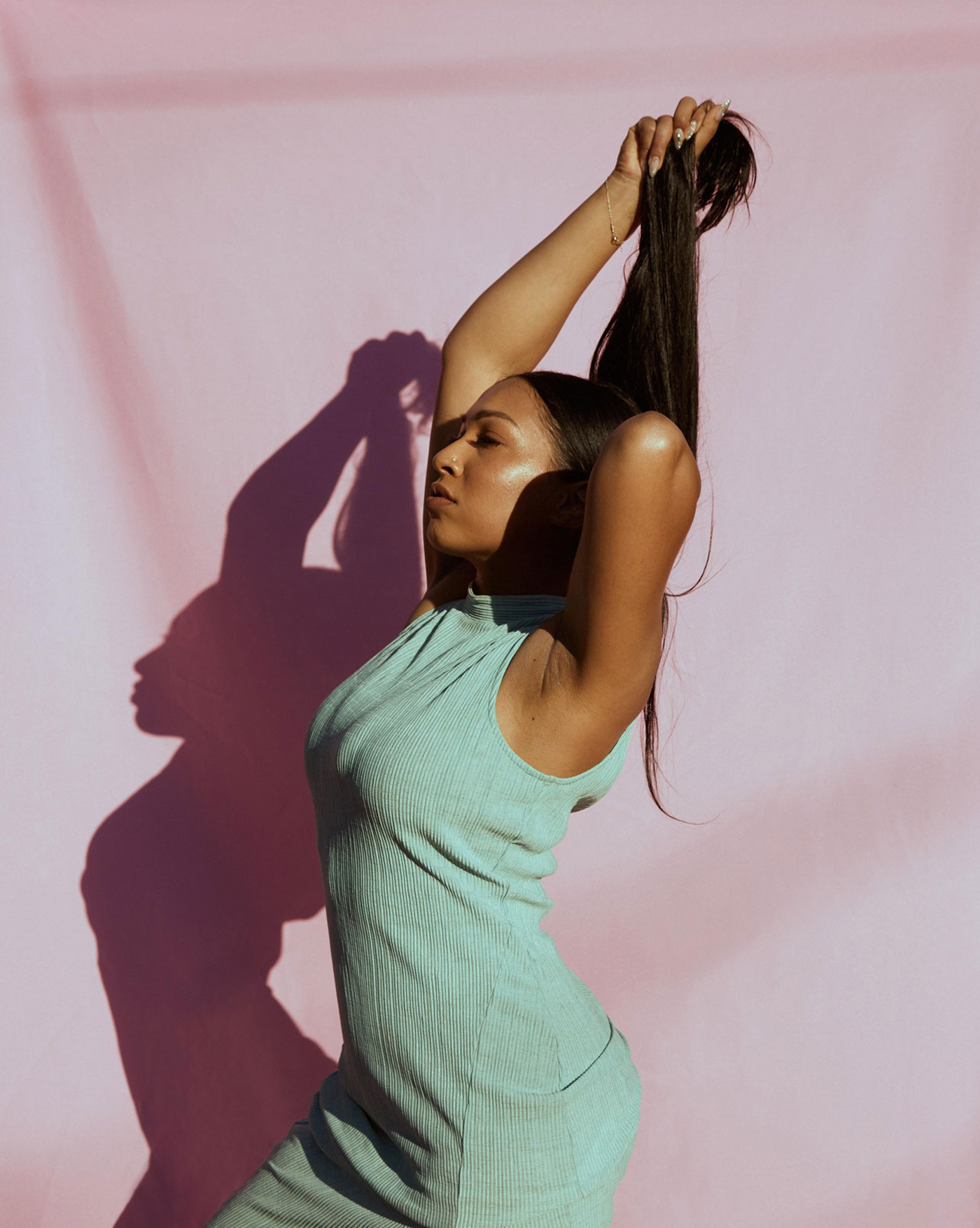
Ajani Charles: Yes, well said.
A lot of progress has been made, but there’s a lot more progress ahead.
And there’s a lot of pushback.
A lot of people say that systemic racism isn’t a thing.
Some people believe that Black people, brown people, people of color are competing on the same, level playing field as white people, generally speaking.
And you and I know that’s not true at all.
Melanie Fiona: That’s not true. That’s just not true.
It’s crazy to me that, as you said, there has been progress, but there’s so much progress to be made, and to be honest, I kind of think that that is the beautiful tragedy of things falling apart.
Things have to be dismantled, so that they can be rebuilt.
And in the dismantling, it is uncomfortable, and it is messy, and it is ugly, and it is challenging, and there are casualties, and there’s discourse, but there’s no way to rebuild something strong on a broken foundation.
So if we have to bring it all down, and we have to really get to the core of what is going on there, or there will never be the change that we really need.
Ajani Charles: I just realized that what you described, as far as the civil unrest in America, things had to fall apart for them to get a bit better.
It’s the same thing with us as individuals.
Without that crisis that you described before, you wouldn’t be able to speak to me today about having a more fulfilling career than before through teaching, through wellness, through mindfulness, through introspection, through musi
Melanie Fiona: It is like we have to hit that rock bottom.
It has to get really dark before it gets light.
Ajani Charles: So, before we wrap this up, what is the vision for your career at this point, and how would you describe success today?
And if you had the ability to go back in time to speak to your younger self, a couple of months before you signed your first record deal, what would you tell that Melanie?
Melanie Fiona: What good questions.
Well, I’ll start with the first one.
Moving forward, the vision for myself is to be a multi-hyphenate, and I don’t ever want to ever pigeonhole myself into being one thing or shaming myself into not feeling like I can be all that I ever wanted.
And so, from being a musician to a mother to a wellness advocate, I feel that these things expand my skill set, and they helped me evolve and grow as a person, and they helped me reach new people in different mediums.
I am writing a book; I have been doing more public speaking and panels, and wellness conversations, and using my voice in other ways.
And so I just feel that I’m allowing myself to be all that I am, and what I am is who I think I’ve been this whole time.
I think we are who we are at the core, and if we can really tap into that, we can spread our wings wider, and really allow ourselves to be everything that we know deep down inside we can be.
I think we have the capability to be so multi-hyphenated.
There are no limitations. Whatever I want to be, I am.
And then if I could go back to before I signed my first record deal, it’s interesting.
I never want to say I would go back, but if I had to, I would say “trust yourself more.”
I think, inside my first record deal, as far as contracts are concerned, you hear these stories all the time like, “oh, you know, it’s fine, you’ll get to a place, and then you’ll renegotiate,” or you’ll get to that place and take what’s being given to you right now.
And you’ll figure it out after, until you realize that you never really get to figure it out after.
Contractually, you’re always kind of trying to navigate “what does this mean now and what does this mean now and what is this?” and you’re afraid to ask questions. You’re afraid to say, “that doesn’t really make me feel comfortable,” or “hey, that doesn’t really make sense,” and “what does this mean for me in 20 years when I no longer make music or what does this mean for my kids?” And “what are masters?”
Record deals now are completely different than when I first signed my first record deal.
So, it’s hard to kind of make the comparison to what’s happening right now, but I would just say “trust yourself.” [to my past self].
I don’t regret anything. I don’t regret not one thing, not one thing that I feel like “I should have” because I do feel like what I was doing at the time was doing the best that I could, and I trusted the people around me that I could trust at that time, to guide me and teach me the things that I needed to know at that time.
And so everything is a lesson. But I would say, “trust yourself more. Don’t be afraid to ask as many questions as possible. What’s for you will always find you.”
And “never feel that you have to do anything out of fear of a missed opportunity.”
Because I’m sure we can all think about times in our youth where we’re like, “well, if I don’t do this now, when am I going to do?” Direction is more important than speed; I say that every day, all day, every day.
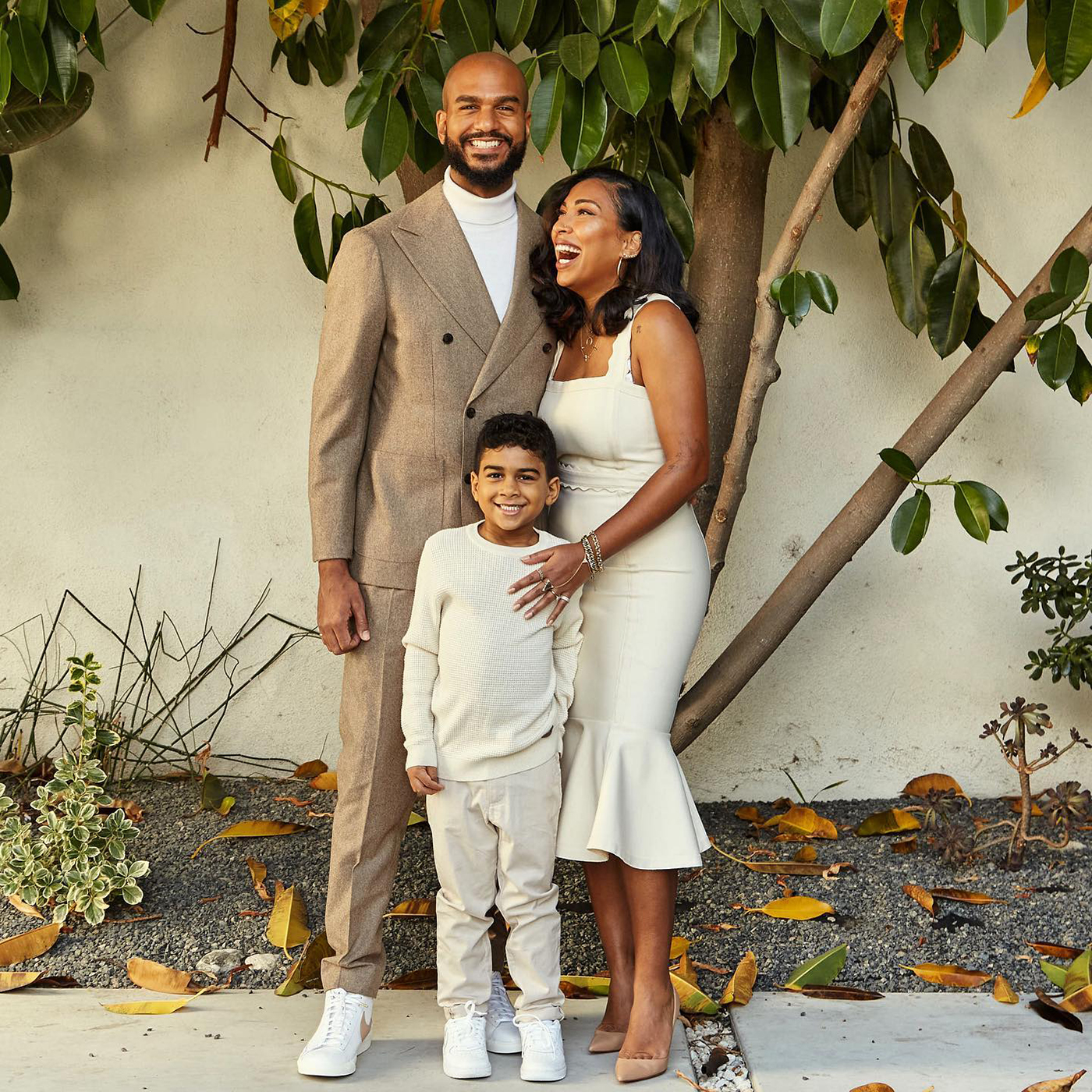
Ajani Charles: That’s amazing.
Thank you so much.
